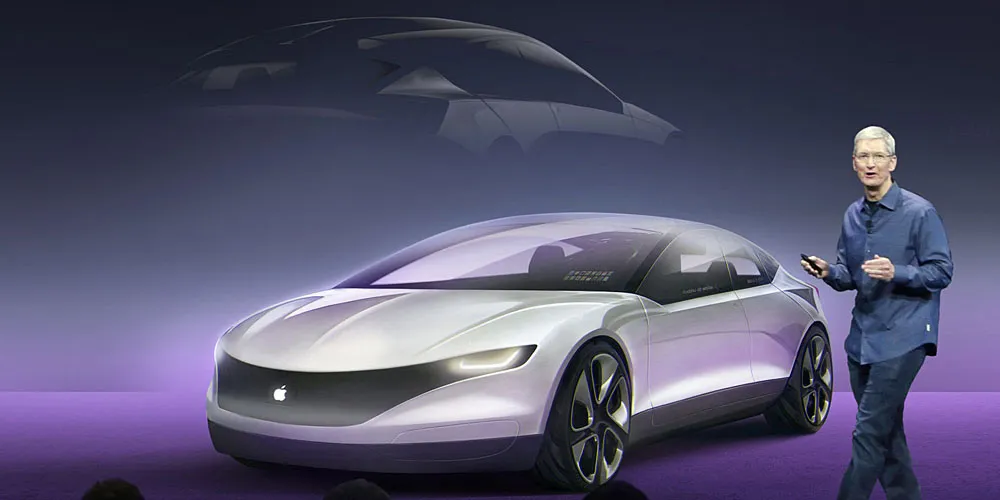Apple unveils its innovative electric vehicle plans, setting a target launch for 2028. The scaled-down autonomous car aims to redefine driving, introducing limited autonomy features akin to Tesla’s Level 2+ system. Apple’s strategic shift, led by VP Kevin Lynch, prioritizes practicality over lofty ambitions, marking a pivotal moment for the project. As doubts linger about the car’s innovativeness, the 2028 launch date signals a new chapter in Apple’s journey to transform the automotive landscape.
Back in 2014, Apple started Project Titan with the ambitious goal of creating a fully autonomous car that doesn’t even need a steering wheel. However, this dream faced numerous roadblocks and leadership changes. In 2021, Apple VP Kevin Lynch took the wheel, steering the project in a new direction, as reported by Bloomberg.
The initial plan of achieving Level 4 autonomy, meaning the car could handle itself in specific situations like a local driverless taxi, turned out to be too ambitious. Apple had to rethink its strategy. Instead of going all-in for a self-driving car, they decided to focus on creating an electric vehicle with more practical features. This revised plan includes a Level 2+ system, offering limited autonomy similar to Tesla’s technology.
A Level 2+ system involves features like lane centering and adaptive cruise control. It’s not a full self-driving car, but it’s a step beyond basic driver assistance. This decision, though, came at a cost. the company had to push back the expected launch date to 2028, marking a pivotal moment for the entire project.

This delay wasn’t taken lightly by Apple’s leadership. The board, along with Kevin Lynch and CEO Tim Cook, had to weigh the options carefully. Should they proceed with a more modest plan, or should they consider scrapping the project altogether? This internal debate reflects the uncertainty surrounding the success and innovativeness of the first Apple Car.
Read Also: Get In-Depth Insights into Apple Vision Pro – Specs, Repairs, and AppleCare Plus
Internally, there are discussions about how the scaled-down approach might affect the perception of Apple’s electric vehicle. Some employees worry that it might be seen as just another car, lacking the wow factor. Nevertheless, the company is actively seeking partnerships with European manufacturers to ensure the success of their revised strategy.
The journey of Apple’s electric car project has been a rollercoaster ride. From leadership changes to hiring freezes and layoffs, the project faced its fair share of challenges. Predictions from industry analysts vary widely, with some expressing doubts about the car’s mass production within the next few years.
The silver lining in this story is Apple’s flexibility. By focusing on a more basic electric vehicle, they can adapt to changes in regulations and potentially upgrade their system through software updates. This aligns with the strategies of other successful electric vehicle manufacturers, like Tesla, who offer limited autonomy features in their cars.
Apple’s 2028 electric vehicle plans represent a significant shift from their original vision of a fully autonomous car. The decision to prioritize a more practical Level 2+ system reflects the challenges faced by the Project Titan team and the need to align with current industry standards. While doubts and uncertainties linger, Apple’s entry into the electric vehicle market promises innovation and a redefined driving experience, even with adjusted expectations and a delayed launch. Get ready for a new era on the roads, courtesy of Apple’s electric revolution!

Read More: iPad Air 2024 Leak Reveals Stunning 12.9-inch Display Upgrade!



